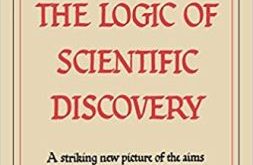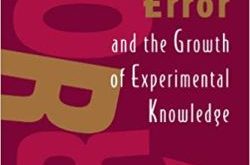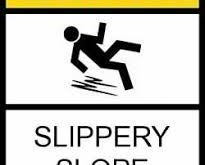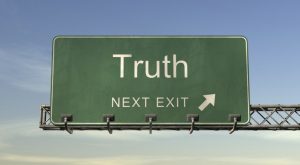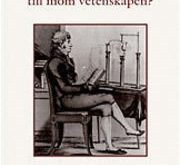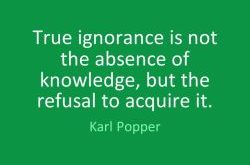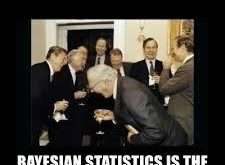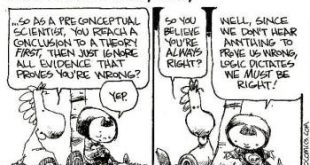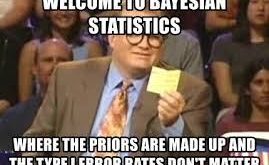The quest for certainty — a new substitute for religion In this post-rationalist age of ours, more and more books are written in symbolic languages, and it becomes more and more difficult to see why: what it is all about, and why it should be necessary, or advantageous, to allow oneself to be bored by volumes of symbolic trivialities. It almost seems as if the symbolism were becoming a value in itself, to be revered for its sublime ‘exactness’: a new...
Read More »Bayesian ‘old evidence’ problems
Bayesian ‘old evidence’ problems Why is the subjective Bayesian supposed to have an old evidence problem? The allegation … goes like this: If probability is a measure of degree of belief, then if an agent already knows that e has occurred, the agent must assign P(e) the value 1. Hence P(e|H) is assigned a value of 1. But this means no Bayesian support accrues from e. For if P(e) = P(e|H) = 1, then P(H|e) = P(H). The Bayesian condition for support is not met...
Read More »Den postmoderna utförsbacken
Disse teorier om det sociale kan så rettes mod den sociale institution, vi kalder viden. Hermed bliver viden til eksempelvis internaliserede objektiverede og legitimerede eksternaliseringer af menneskelig adfærd … Dette er i og for sig uproblematisk forudsat, at man kan opretholde en distinktion mellem det vi i samfundet kalder ”viden” og så viden i sin filosofiske og epistemologiske forstand, som viden om virkeligheden (”justified true belief”) … Men det er lige her, at...
Read More »Postmodernism — en antiintellektuell avgrund
Den antiintellektuella avgrunden är nära när den postmoderna sanningsrelativismen infekterar det offentliga samtalet på alla nivåer, inklusive den akademiska världen. I Sverige tycks den pedagogiska disciplinen vara värst smittad. En docent i pedagogik fick för några år sedan Skolverkets uppgift att skriva en rapport om fysikundervisningen i den svenska skolan, samt komma med förslag på hur den skulle attrahera fler flickor. Ur rapporten: ”Föreställningen om det vetenskapliga...
Read More »Postmodern mumbo jumbo på våra universitet
Postmodern mumbo jumbo på våra universitet Fyra viktiga drag är gemensamma för de olika rörelserna: 1 Centrala idéer förklaras inte. 2 Grunderna för en övertygelse anges inte. 3 Framställningen av läran har en språklig stereotypi … samma formuleringar återkommer gång på gång, utan att nyanseras och utan att utvecklas. 4 När det gäller åberopandet av lärofäder råder samma stereotypi — ett begränsat antal namn förekommer. Heidegger, Foucault och Derrida...
Read More »Why science is not a game of chance
Why science is not a game of chance If human scientists could be supposed to play a system of analogous games of chance … the evidential support available for successful scientific hypotheses could be measured by a Pascalian probability-function … But unfortunately the analogy breaks down at several points. The number of co-ordinate alternative outcomes that are possible in any one trial of the issue investigated may be infinite, indeterminate, or at...
Read More »Critical rationalism
For realists, the name of the scientific game is explaining phenomena, not just saving them. Realists typically invoke ‘inference to the best explanation’ [IBE] … What exactly is the inference in IBE, what are the premises, and what the conclusion? The intellectual ancestor of IBE is Peirce’s abduction: The surprising fact, C, is observed. But if A were true, C would be a matter of course. Hence, … A is true. Here the second premise is a fancy way of saying “A explains C”....
Read More »Bayesianism — a patently absurd approach to science
Bayesianism — a patently absurd approach to science Back in 1991, when yours truly earned his first PhD with a dissertation on decision making and rationality in social choice theory and game theory, I concluded that “repeatedly it seems as though mathematical tractability and elegance — rather than realism and relevance — have been the most applied guidelines for the behavioural assumptions being made. On a political and social level, it is doubtful if...
Read More »What counts as evidence?
What counts as evidence? What counts as evidence? I suspect we tend to overweight some kinds of evidence, and underweight others. Yeh’s paper is a lovely illustration of a general problem with randomized control trials – that they tell us how a treatment worked under particular circumstances, but are silent about its effects in other circumstances. They can lack external validity. Yeh shows that parachutes are useless for someone jumping from a plane when...
Read More »Why I am not a Bayesian
Why I am not a Bayesian No matter how atheoretical their inclination, scientists are interested in relations between properties of phenomena, not in lists of readings from dials of instruments that detect those properties … Here as elsewhere, Bayesian philosophy of science obscures a difference between scientists’ problems of hypothesis choice and the problems of prediction that are the standard illustrations and applications of probability theory. In the...
Read More » Heterodox
Heterodox

